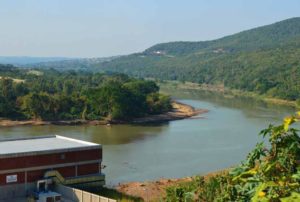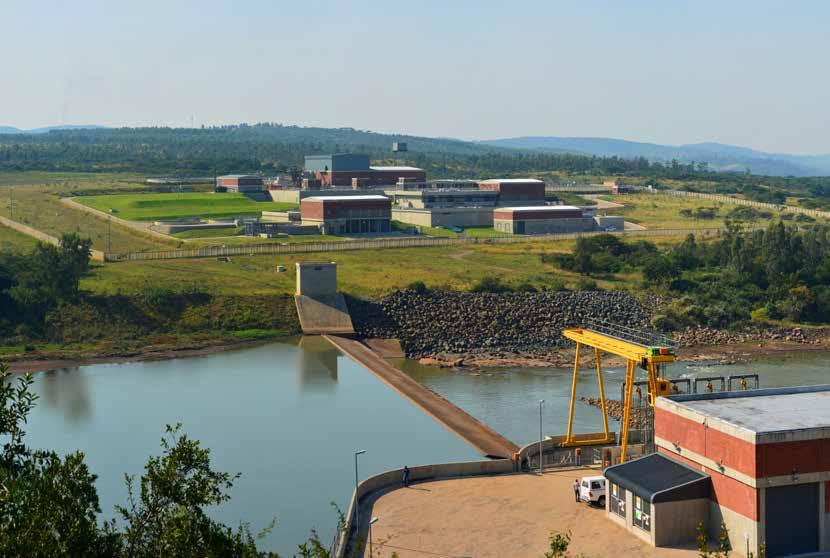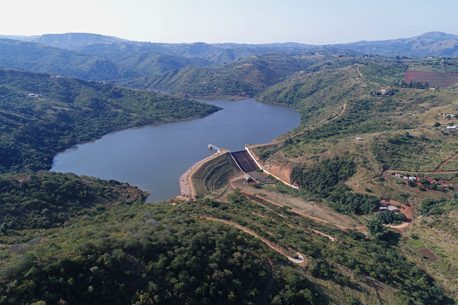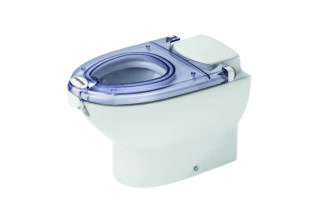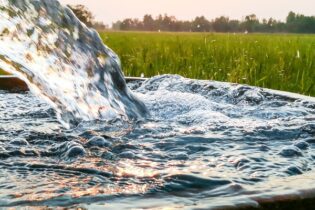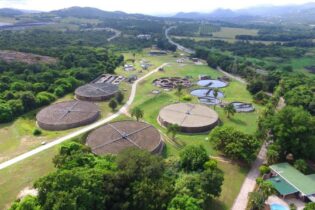The supply of water and sanitation services across difficult hilly terrain and vast rural areas in KwaZulu-Natal is a familiar challenge that Umgeni Water has faced for nearly 50 years. But Covid-19 provided entirely new issues that forced the water board to drastically change the way in which it operates.
While classified as essential workers, people working within the water and wastewater sector are unfortunately not considered ‘frontline workers’ like our colleagues in the health sector. This is strange because there has been a justifiable increased focus on water and sanitation infrastructure and service delivery as a means of combatting the virus. While a lot of our support staff (human resources, finance, corporate services) could work remotely, many other staff members work in the frontline and are crucial to the supply of water and wastewater services,” explains Dan Naidoo, regional manager of Umgeni Water. In a bid to protect its core staff, who are fundamental to the provision of water and wastewater services, from the virus, Umgeni Water had to make operational changes. These company employees were transported to work and back home via specially arranged vehicles. Access to all plants was also restricted – making sure that only the necessary personnel were on-site. During the second wave of Covid-19, key members of the operations team left their families and were put into isolation in various hotel rooms or bed and breakfasts to keep them safe. “This was a huge sacrifice; many of our staff members lived away from their homes and families for close to three months. However, infection rates among Umgeni staff members remained extremely low and there was minimal disruption to our water and sanitation services,” adds Naidoo. In addition to protecting its staff, Umgeni Water prioritised the implementation of technology that allowed for operations to be controlled remotely. “Over the years, Umgeni Water has used remote monitoring and control solutions; with Covid-19, we further built upon those capabilities. Presently, we can now remotely operate nearly all key infrastructure (with a margin of safety),” says Naidoo. Over the past 18 months, Umgeni Water has successfully evolved into an organisation that is largely running remotely. The water board has continued to fulfil its core mandate by responding timeously to breakdowns and repairing any failures, while meeting all water quantity and quality requirements. “In addition to water and sanitation supply services, Umgeni Water worked closely with municipalities to make sure that a greater number of people had access to water, with boreholes and water storage tanks. The past few months have been challenging but also very rewarding for Umgeni Water, adds Naidoo.Infrastructure development
As a consequence of Covid-19, the roll-out of infrastructure projects was slowed down by lockdowns, additional safety concerns, and difficulty in accessing materials. Presently, Umgeni Water has restarted many of its capex projects.There are currently over 25 development projects being implemented – i.e. pump stations, reservoirs, wastewater treatment works, pipelines, water treatment works, and bulk water supply schemes.
The water board spends up to R2 billion annually on capital expenditure and serves a mix of municipalities that are either large and urban or very rural and remote. “These rural municipalities operate in challenging environments and often battle with revenue collection. Their balance sheets are therefore unable to sustain significant infrastructure investments. This is the reason why Umgeni Water executes projects in partnership with municipalities in rural areas. In fact, close to 40% of our capital expenditure is dedicated towards infrastructure projects in those areas,” adds Naidoo. “For many years. Umgeni Water has directed a significant amount of its own resources or funds to co-fund large infrastructure projects, with funds from the Regional Bulk Infrastructure Grant, towards providing water and sanitation services to rural municipalities by putting infrastructure in the ground (like the uMshwathi Regional Bulk Water Supply Scheme). We also assist them with water demand management strategies and conservation.” Naidoo explains that Umgeni Water is unique in that it is not a centralised water board – its infrastructure, which is spread across KwaZulu-Natal, feeds different areas across municipal boundaries. “We have committed to supply water and sanitation services to remote areas. By supplying infrastructure to these places, we prevent the influx of people to other municipalities that have water services. The resettlement of people to these areas put an additional strain on that infrastructure. This is the purpose of an SOE – we invest in places where no other businesses would, creating economic growth.”Asset management
While Umgeni has a capex programme that builds new infrastructure, it also has a structured asset management strategy that takes care of existing infrastructure. Naidoo maintains that Umgeni Water has a thorough approach towards the management of its infrastructure. “Asset management is a fundamental component to a successful infrastructure business. We have a clear asset management strategy that is internationally benchmarked. A significant portion of our expenditure is geared towards maintenance and extending the life of our assets.” Over the past two years, Umgeni Water has adopted the international standard of asset management – ISO 55000. “Due to Covid-19, there has been no one in the country that can do the certification, but Umgeni Water has been audited against ISO 55000 and looks forward to achieving the certification in due course,” says Naidoo. “Asset management adds further value to our balance sheet and assists in making water more affordable for everybody.”

